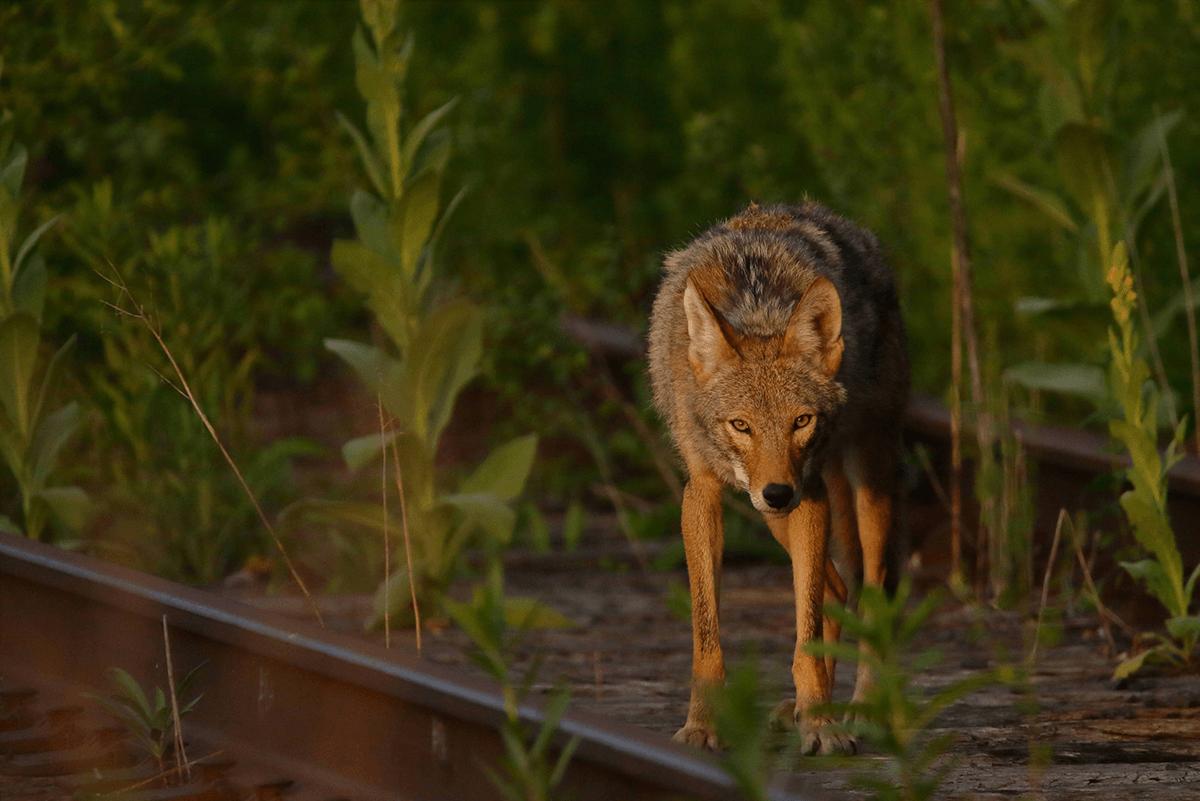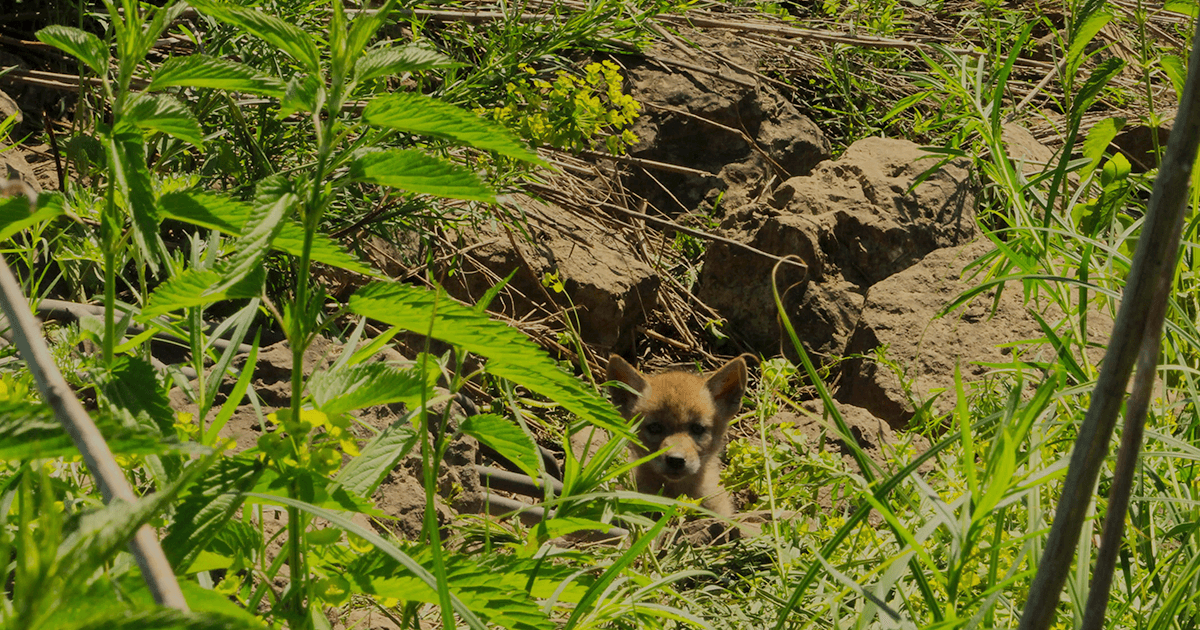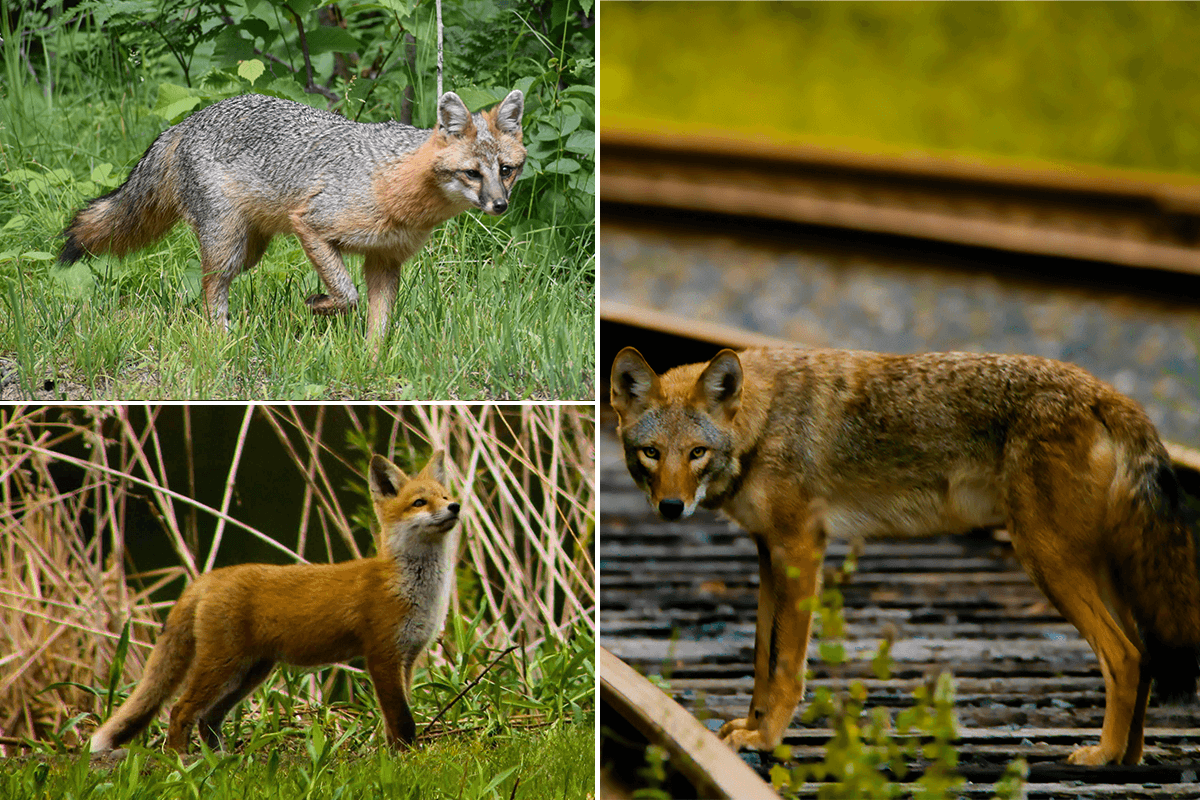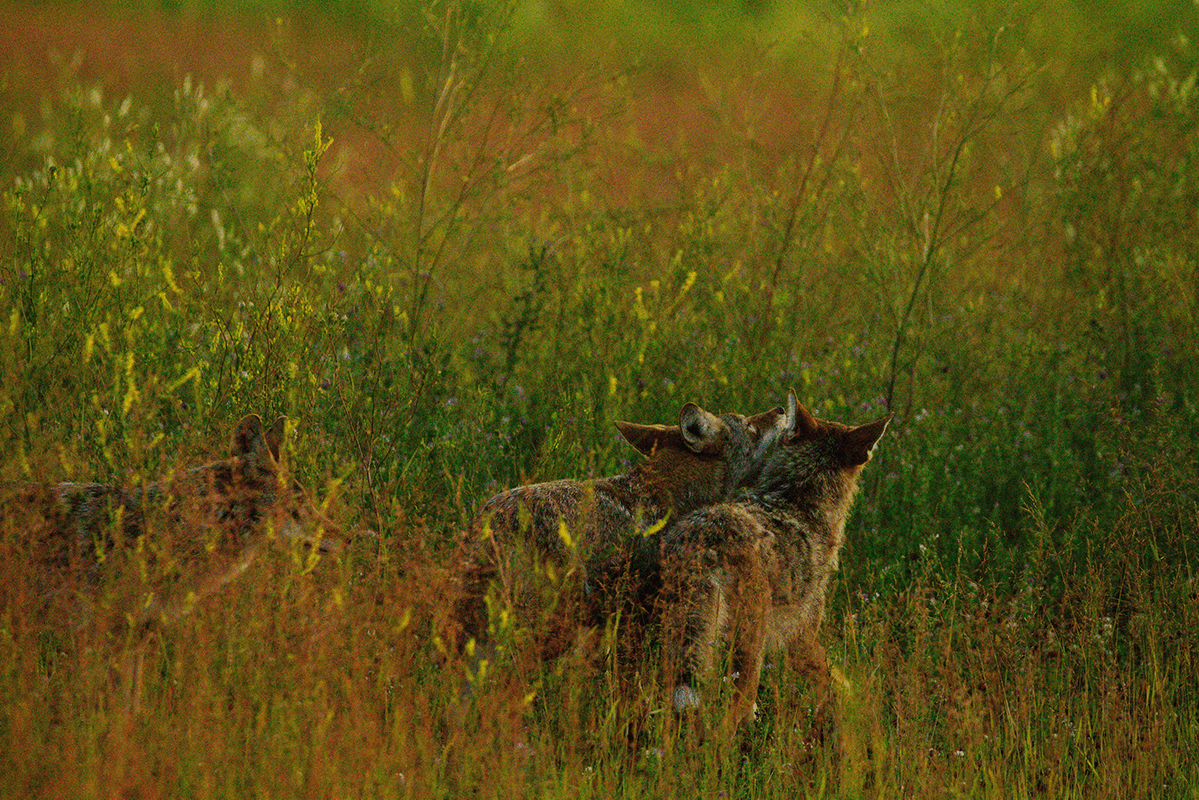Got scat? The next phase of the coyote and fox project

Researchers want to know how wild canids are adapting to urban areas so that we can all better understand these animals and learn to share our metro river habitat. (Photo by Geoffrey Miller for TCCFP)
Over the past three years, hundreds of FMR supporters have helped the Twin Cities Coyote and Fox Project gather reports of fox and coyote sightings across the metro area.
They contributed to datasets about habitat use and den preferences, as well as diet and disease dynamics. In some cases, researchers were even able to radio-collar animals and track their movements and habits. All of this information broadens our understanding of where wild canids forage, den and travel, helping to improve habitat management, educate the public and minimize potential conflict with humans and our pets.
Now, the University of Minnesota-led project is once again inviting FMR supporters and other metro residents to participate in two new citizen science initiatives.

A coyote pup pops out of a stormwater outlet used as a den. (Photo by Geoffrey Miller for TCCFP)
How you can contribute to coyote and fox research
Researchers continue to want to hear about fox and coyote sightings (see below for comparison photos). They are also on the lookout for den sites — plus a few volunteers willing to do a little dirty work.
If you've noticed a fox ducking under a shed or have tracked coyotes or foxes to a hole in the ground, you've probably found a den site. You can share potential den locations with researchers to help them learn about the den preferences of metro area coyotes and foxes.
If you're up for something a bit more hands-on, researchers also need volunteers to help us learn about metro canids' diets. You can help researchers by finding, collecting and submitting scat samples for analysis.
Learn more about reporting fox and coyote sightings or den locations, and how to become a sample collector, from the Twin Cities Coyote and Fox Project.

Top left: gray fox; bottom left: red fox; right: coyote. Note how the coyote's face is more like a domesticated dog, while the gray fox's face looks more like a cat. Both foxes are much smaller than coyotes. (Gray fox photo by Tammy Mealman/USFWS; red fox and coyote photos by Geoffrey Miller for TCCFP)
Want to learn more about the project?
Keep an eye on the Twin Cities Coyote and Fox Project website and social media (Facebook @tccfp and Twitter @tccfp_umn) for updates.
PBS also covered the project in the second half of this Prairie Sportsman episode.

Coyotes greet each other after coming together from opposite sides of a large open area in St. Paul. (Photo by Geoffrey Miller for TCCFP)
Funding for this project was provided by the Minnesota Environment and Natural Resources Trust Fund as recommended by the Legislative-Citizen Commission on Minnesota Resources (LCCMR).